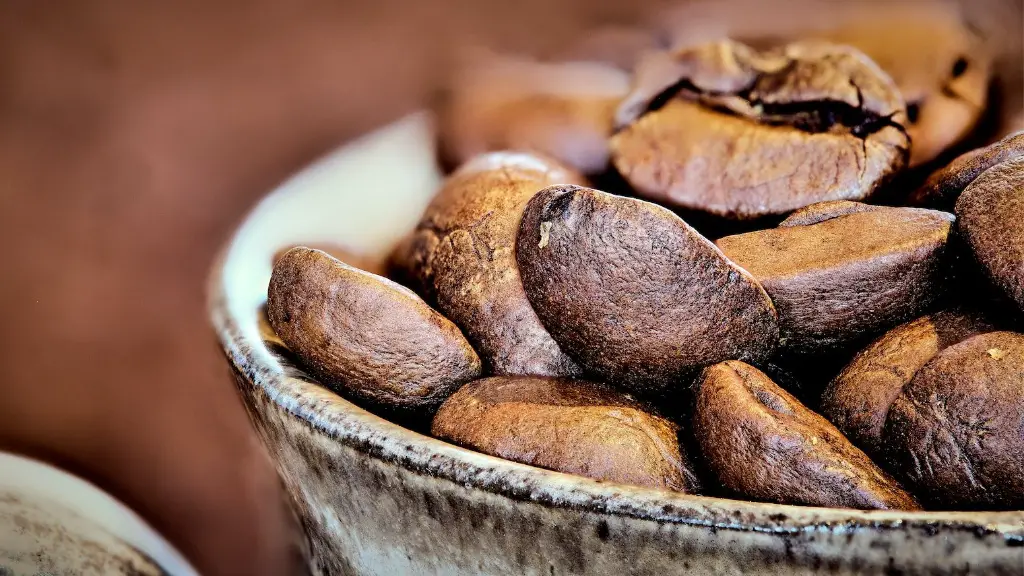Should You Drink Water After Coffee?
Coffee has become an essential part of life for many people and can be considered a major health habit. But, what is the impact of having a cup of coffee regularly and should you drink water after coffee? Coffee is definitely an acquired taste and it involves a lot of things, such as brewing method, bean origin, and personal preferences. It is popularly known to have an interesting mix of digestive and stimulatory effects on its users. Coffee is also known to act as a diuretic, though many people remain unaware of this fact.
According to research, it is known that coffee triggers an increase in urine output. This, combined with its various other effects, makes it necessary to consider if drinking water after coffee is a good idea. In this article, we will be discussing the potential beneficial effects of consuming water after coffee and the potential drawbacks.
It is a common idea that drinking water after coffee helps offset the diuretic effect of coffee and thereby helps replenish any nutrients and water lost through urine. A study conducted in 2018 demonstrated that caffeinated coffee indeed does increase the output of urine. However, the participants in the study were found to have an increased rate of water intake after drinking coffee, suggesting that the body was inducing voluntary hydration.
It is possible that the body intuitively knows it needs to make up for any water loss and it is what leads to the voluntary increase of water intake. According to a few experts, it is recommended that you try to drink water after coffee as it can help to restore the hydration levels and make up for any losses incurred. It is also recommended to opt for nutrient-rich beverages, such as green tea, if you don’t enjoy the taste of plain water.
It is important to consider the various reasons why you should drink water after coffee. First, it is known that coffee has a diuretic effect, even though the effect is mild. Drinking water after coffee can help to counteract the diuretic effect of coffee, which in turn can help to replenish any nutrients and water lost through urine. This can in turn help to prevent dehydration.
Second, it is known that coffee can cause an increase in urinary calcium excretion. This can have a negative impact on the body, as a lack of calcium can lead to osteoporosis and other related diseases. By replenishing calcium via drinking water after coffee, it is possible to reduce the risk of developing any related illnesses.
Third, drinking water after coffee can also help to reduce the acidity of the stomach. Coffee is known to increase acidity in the stomach, which can lead to various digestive problems. Drinking water after coffee can help to dilute the acidity in the stomach, which in turn can help to reduce any associated issues.
Potential Drawbacks of Drinking Too Much Water
Although drinking water after coffee can be beneficial, it is important to note that consuming too much water can also lead to problems. Excessive water consumption can lead to electrolyte imbalances, which can cause various problems, such as muscle cramps, fatigue, and dizziness. It is important to ensure that you are drinking the right amount of water to prevent any such electrolyte problems.
It is also important to consider that coffee does not necessarily cause dehydration. In fact, many people find that coffee does not have a diuretic effect on them. Therefore, it is important to be aware of your body’s response to coffee and don’t force yourself to drink water after coffee if you don’t feel the need to.
Other Causes of Dehydration
Dehydration can be caused by a variety of things, and coffee is just one of them. Factors such as climate, physical activity, and diet can all have an effect on your hydration levels. It is important to be aware of these factors and take steps to ensure that you are getting enough fluids throughout the day. This can include drinking a variety of beverages, such as water, tea, and juice, and also eating plenty of high-water content foods, such as fruits and vegetables.
It is also important to note that alcohol consumption can have a dehydrating effect on the body. Alcohol is a diuretic, meaning it causes increased urination and can lead to an electrolyte imbalance. Therefore, it is important to be aware of this and to drink plenty of water when you are consuming alcohol.
Tips for Drinking Water After Coffee
If you do find that you need to drink water after coffee, there are a few tips that you can follow to ensure that you do it in a healthy way. Firstly, try to opt for beverages that are rich in electrolytes, such as coconut water and electrolyte drinks. This can help to replenish any electrolytes lost through coffee consumption.
Secondly, it is important to drink water slowly and steadily throughout the day. This can help to ensure that your body doesn’t become overhydrated. Thirdly, be sure to monitor your urine output and color to ensure that you are consuming the right amount of fluids. Lastly, try to opt for nutrient-rich beverages, such as green tea, if you don’t enjoy the taste of plain water.
Understanding Your own Hydration Needs
It is important to be aware of your own hydration needs and to take steps to ensure that you are getting enough fluids throughout the day. This can involve drinking a variety of beverages, such as water, tea, and juice, and eating plenty of high-water content fruits and vegetables. It is also important to monitor your urine output and color to ensure that you are consuming the right amount of fluids.
It is also important to consider how your body responds to coffee. For some people, it can be beneficial to drink water after coffee, as it can help to restore hydration levels. For others, this may not be necessary. Ultimately, it is important to be aware of your own body’s hydration needs and to take steps to ensure that you are getting enough fluids.
Coffee and its Caffeine Content
Finally, it is important to consider the caffeine content of coffee. Coffee does contain caffeine, which is a known stimulant. Caffeine can cause a number of effects, such as increased alertness and concentration, increased heart rate, and increased urination. Therefore, it is important to be aware of the potential effects of caffeine and to take steps to ensure that your caffeine intake is in moderation.
It is important to note that caffeine is widely accepted as safe in moderation. However, it is important to be aware of any potential risks when drinking coffee, particularly if you are pregnant or have any existing medical conditions.
Conclusion
In conclusion, drinking water after coffee can be beneficial, as it can help to restore hydration levels and make up for any losses incurred. However, it is important to be aware of the potential drawbacks of excessive water consumption and to take steps to ensure that you are drinking the right amount. It is also important to understand your own hydration needs and to be aware of the potential effects of caffeine. Taking all of these factors into account will help to ensure that you are getting the most out of your coffee consumption.




